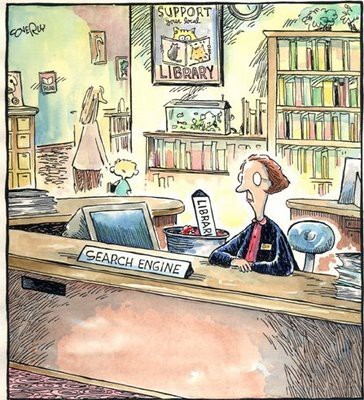#libcampuk2011
Von John Dolan
Library Camp 2011 took place in Birmingham, England on 8 October – like a spontaneous outburst of thinking and enthusiasm. Though termed an “unconference” it was in fact a well-organised, lightly structured event of 173 participants (2 didn’t make it on the day)!
Jo McCausland (@libraryjmac) was inspired by a Local Government Camp a year earlier to set this up: a good venue; email and twitter announcements; Sponsorship (essential if admission is free and not easy to find at present!). It was fully booked online in 21 hours – yes!
There was a fantastic mix of library and information practitioners from all backgrounds plus people active in related fields like theatre and media. After (yes) everyone introduced themselves (who I am; why I’m here) people “pitched” to lead a session on a subject of their choice.
With 45 minutes for each session across 7 rooms there were 35 discussion groups through the day with multiple additional chances to network and make friends. Everything from the day is on the web.
There will surely be a #libcampuk 2012!
Worth mentioning that after an early humourous reference to cake many – many! – people brought cake to share. Look at the pictures!
Some of the sessions I attended or found the notes and links valuable include the following:
Transition: There is little investment in managing the transition between school and university. Learners are rarely able to transfer skills from one stage in education to the next; how librarians can help teachers and learners provide continuity so each stage in education builds on the previous. This applies to all stages in the education system. Librarians can work with teachers and students at all stages of education, avoiding waste and gaining more. Above all, embed the learning skills into the curriculum; learning skills are not “an extra” they are essential to education: http://intothehobbithole.blogspot.com/2011/10/libcampuk11-session-1-managing.html
Several areas of innovation discussions included Games and Gamification, Mobile apps (maybe more questions than answers but useful links), libraries without buildings, creative commons, open-source software, representing the most incredible opportunity for strategic library cooperation. A session on library philosophy reminds us of the many reasons we are here.
A Special Collections session was interesting. Early in the notes they referred to the fate of special collections as seeming like a private resource for the few. Much of the session was therefore about increasing accessibility. This was a key issue for me and a key purpose of creating the Library of Birmingham: http://www.birmingham.gov.uk/lob. Immense special collections are unknown to most but the expert; but it’s not just about display it is about actively interpreting their relevance in a modern diverse city community and projecting those collections globally.
Several linked and overlapping themes included Partnership, working with Stakeholders, Embedded Librarianship, Social Networking, Information Literacy, Social Change et al. Together these highlighted the centrality of libraries and their potential for other institutions and to the rest of society.
Useful contacts? Notes from most discussions have useful links. Or, follow #uklibchat led by and for library & information students and new librarians. Meets on twitter every Thursday 6 – 8pm. Each week there’s a topic to discuss. Older librarians can contribute on what’s happened before to inform progress or avoid reinventing the wheel.
Links that should be of interest.
- Library Camp session notes (from the library camp wiki): http://libcampuk11.wikispaces.com/Session+notes (being added to every day)
- Pinboard bookmarks (any blogs, photos, reviews, tagged with #libcampuk11 https://pinboard.in/t:libcampuk11/.
- The #libcampuk twitter archive rss feed; look at comments and conversations from the day and now
John Dolan OBE
- Twitter. @johnrdolan
